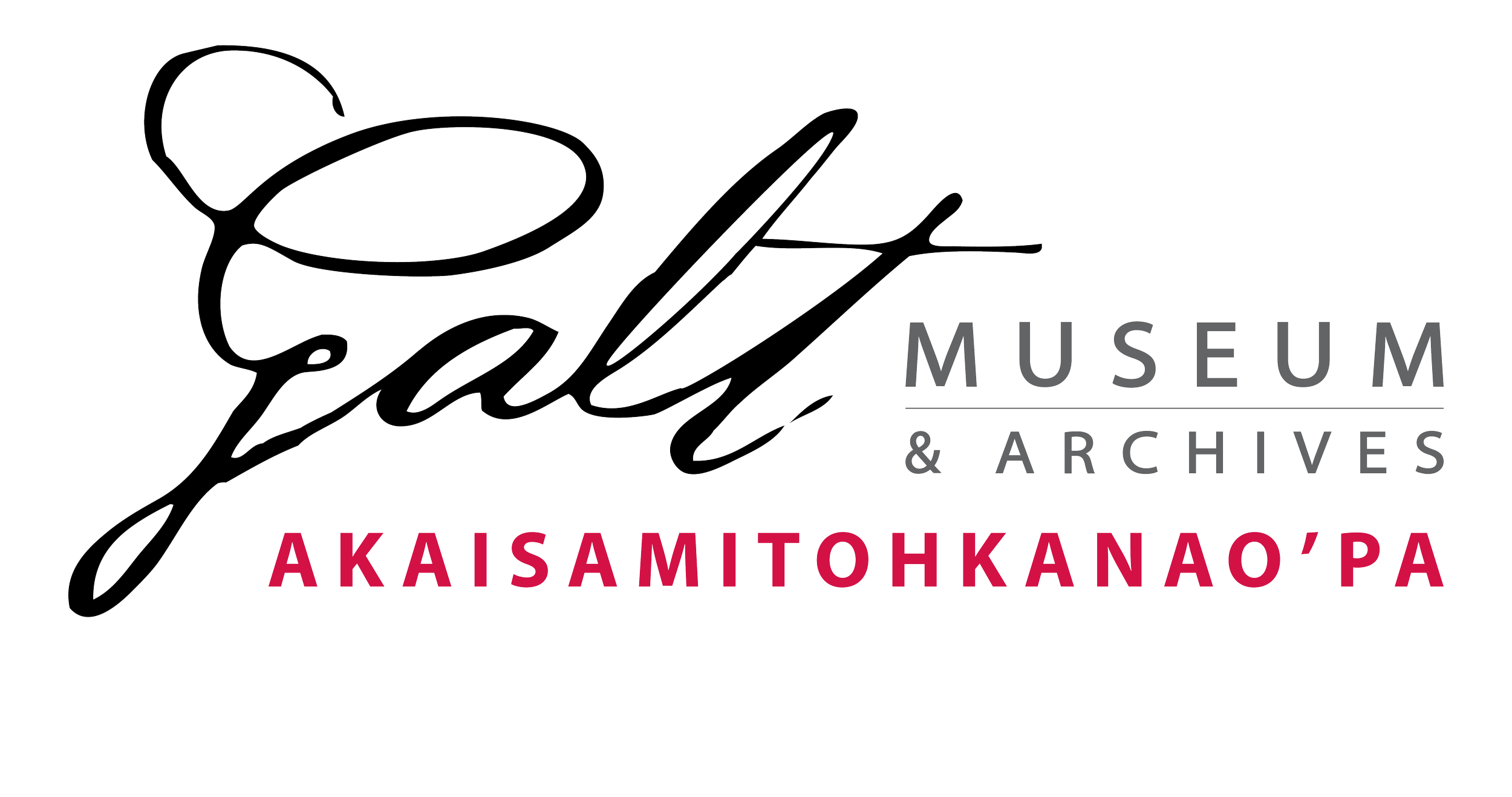Rural Urban Reciprocity: The Galt archives to receive transcripts and oral history interviews!
In the near future, University of Lethbridge History and Women and Gender Studies Professor Dr. Carol Williams will donate some very important oral history interviews and transcripts to the Galt Archives, with the full consent of the interview subjects.
These oral history interviews and transcripts come from Dr. Williams’ summer research project: Rural Urban Reciprocity: A Study of Ranching Life, Agricultural Land Use and Labour on the Southern Albertan Foothills, which was sponsored by the Alberta Rural Development Network (ARDN), Southern Alberta Land Trust Society (S.A.L.T.S.), and the University of Lethbridge. The interviews are currently being completed and edited.
Why are these interviews so important you ask? Well, as technology evolves and become a larger and larger part of our lives the average person tends to write less and less down. Historians have conventionally relied on written documents, such as diaries and letters, to piece together our histories. So the fact that we are producing less written paper documents poses a problem for future historians and society. How will we learn about our time if less and less is recorded and preserved? Will future historians use old Facebook profiles rather than old journals?
Researcher Dr. Carol Williams and Interviewee Kelly Hall.
Photo Courtesy of Don Gill
Oral histories are one method historians still use to counter the diminishing importance of written materials to everyday life. Oral historians capture life narratives, or stories about specific topics from the perspective of an individual or several individuals. They preserve a person’s history, an organization’s history, or the history of a specific event. Oral histories are usually digitally recorded, transcribed and then placed into an archive for the use of future historians, family members, or any other community members using public archives.
Oral history can be particularly useful in filling information gaps on specific topics. For example, the Galt Archives has many letters in support and protest of the Lethbridge Birth Control and Information Centre (LBCIC) from 1974 (as mentioned in one of my previous blogs), but houses less information on the organization of the LBCIC itself. Oral histories with the people who established, worked at, supported, or protested the LBCIC can fill the gaps the paper materials have left.
Oral history is especially important to groups who have been left out of previous histories and archives. First Nations, women, the working class, and immigrants were less visible in Canadian history until approximately the 1970s. Oral history has been one of the most common documentary methods used to capture and preserve these histories.
For the Rural Urban Reciprocity research project, Williams, along with Art Professor Don Gill, New Media graduate and videographer Kenneth Ampiah, and myself, interviewed a small number of ranchers, rural producers, and land owners in the Southern Alberta Foothills. We heard their stories about their land, livestock, water conservation, and western heritage and got to visit many of their ranches and farms.
The Rural Urban Reciprocity research project documented the concerns of ranchers and farmers and, as the Galt Archives acquires the interviews and transcripts, their stories will also be preserved for future researchers!
Oral histories are also useful in many other disciplines and are used for many different reasons. Psychology, Sociology, and Anthropology are just a few other disciplines that use oral interviewing as a research tool because the interviews can provide knowledge on topics such as subjectivity, performance, self, and memory.
Many of the ranchers we spoke to referred to themselves as “not a typical rancher” or “not a real rancher” this is important for present and future researchers to learn what it meant to be a “typical” or “real” rancher in today’s society.
Student Researchers Kenneth Ampiah and Karissa Patton with interviewee Kelly Hall and Dr. Williams.
Photo courtesy of Don Gill.
Oral histories are also important to find what the interviewees consider important. In our interviews many of the ranchers and farmers talked about conservation and environmental issues. I,
as an urban dweller, have never given much thought to where my food comes from, and how the production of the food I eat can affect the environment. This lesson of those who produce food for the urban table was what impacted me the most during the project.
The ranchers we met during this project expressed an amazing concern for the land, wildlife, water. The ranchers’ dedication to reducing their environmental footprint and the conservation of the land is amazing. For example, interviewees Hilah and Norman Simmons’ land is completely organic. At first when I heard this I didn’t think much of it, until I learned that ‘organic’ meant they had to pick all the weeds on their many quarter sections by hand! These ranchers put the land, water and wildlife first and genuinely care about our province’s and our country’s environment. It really made me stop and think about how my work and my actions impact the environment and how I can reduce that impact.
Oral histories have a wide variety of uses and are very significant to researchers from multiple disciplines. I know the Galt Archives is very excited to accept and preserve such wonderful historical sources!
By Karissa Patton
Karissa Patton is a fourth-year History major at the University of Lethbridge who is interested in Southern Alberta Women’s History. This spring she is the archives assistant social media contributor for the Galt Museum & Archives, earning Applied Studies credit while sharing stories uncovered in the archives.


